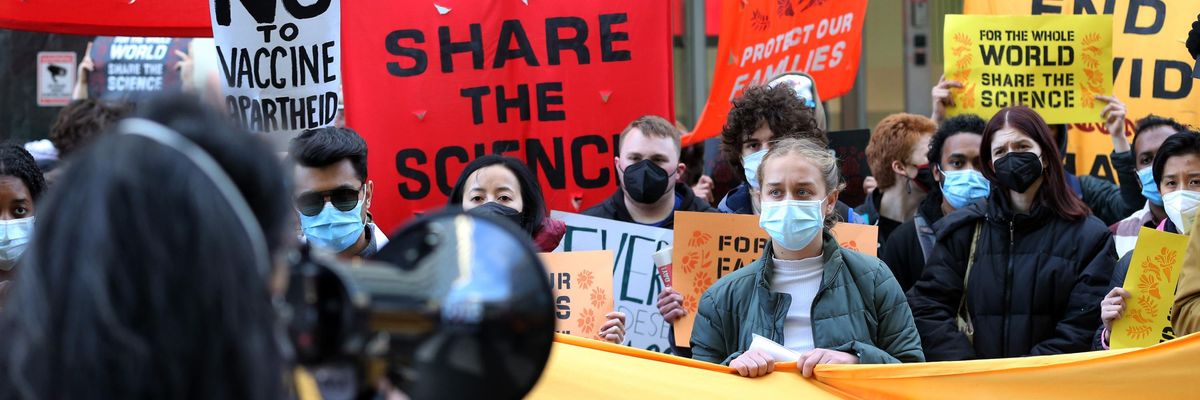I was glad to see Ezra Klein's piece today touting the Biden administration's creation of ARPA-H. This is the Advanced Research Projects Agency-Health, a DARPA-type agency explicitly designed to promote the development of health-related innovations, like vaccines, drugs, and medical equipment.
Like Ezra, I'm a big fan of increased public funding for biomedical research. However, he goes a bit astray in his thinking near the end of the piece. He notes proposals, like those put forward by Bernie Sanders, for a cash prize to take the place of a patent monopoly. The government hands out $100 million, $500 million, or $1 billion, and then allows the drug, vaccine, or whatever to be sold as a cheap generic. That likely means breakthrough cancer drugs selling for hundreds of dollars rather than hundreds of thousands of dollars.
"The government could identify, say, 12 conditions that it wants to see a drug developed for. The first group to develop and prove out such a drug would get a princely sum -- $100 million, or $500 million, or a billion dollars, depending on the condition and the efficacy. In return, that drug would be immediately off-patent, available for any generic drug producer to manufacture for a pittance (and available for other countries, particularly poor countries, to produce immediately)."
I think the Sanders proposal is a great improvement over the current system. But coming in the middle of a discussion of a plan for more direct government funding, it makes the famous Moderna mistake: paying companies twice.
For folks who may have forgotten, we paid Moderna $450 million to develop its coronavirus vaccine. We then paid it another $450 million to cover the cost of the phase 3 testing needed for FDA approval. We then allowed it to claim intellectual property in the vaccine, which meant tens of billions of dollars in revenue. It also led to the creation of at least five Moderna billionaires. Tell me again how technology creates inequality.
It really shouldn't sound too radical to say that companies only get paid once for their work. If the government pays for the research, it doesn't also give you a patent monopoly. These are alternative funding mechanisms, not part of a smorgasbord that we throw at innovators to allow them to get incredibly rich at the expense of the rest of us.
Like Ezra, I applaud the Biden administration's commitment to increase government support for developing new technologies, but we should not be doing this in a way that makes our inequality problem even worse. We can argue over the best mechanisms.
I personally prefer direct public funding to a Sanders-type prize system. The main reason is that we can require everything be fully open-sourced as quickly as possible under a direct funding system, allowing science to advance more quickly.
Also, I suspect that awarding the prizes will prove to be a huge legal and moral nightmare. It is not always clear who actually met the prize conditions and also who made the biggest contribution to getting there. For example, a researcher may make a huge breakthrough that allows pretty much anyone to come along and cross the finish line and claim the prize. Direct upfront funding removes this problem. (I discuss this issue in chapter 5 of the good book, Rigged [it's free].)
In any case, we can debate the best mechanism through which public funding can take place, patent monopolies, prizes, or direct funding, but the idea that you only get paid once should not be controversial. It is unfortunate that Ezra doesn't address this issue in his piece, since he does know better (he reads my stuff). There is a huge amount of money at stake in who gets the gains from innovation, likely more than $1 trillion a year, and it would be an incredible failing of the political process if the issue is not even discussed.




